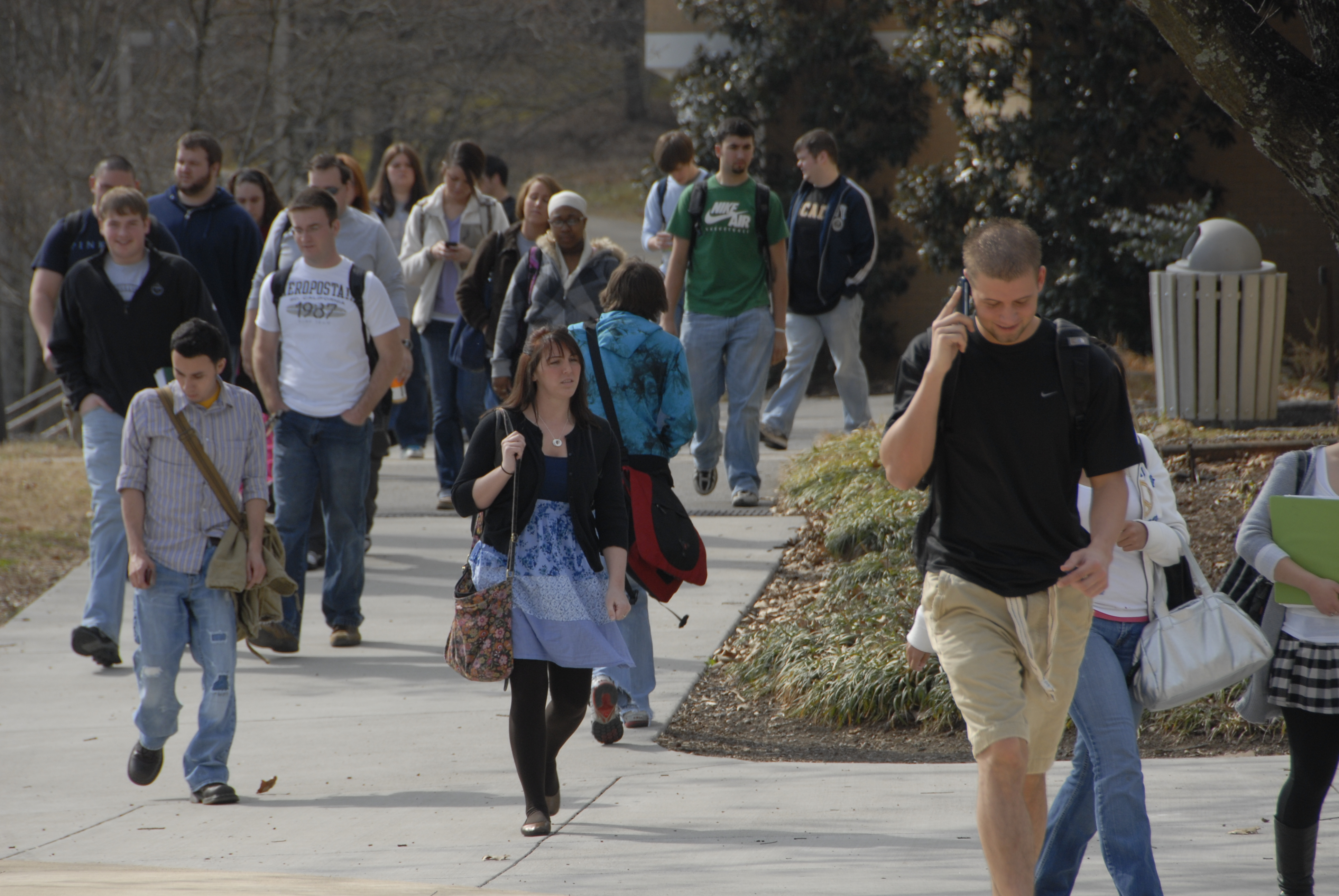Georgia is working to become the third state to bar illegal immigrants from attending public colleges and universities.
A Senate bill deals with verification of legal status for anyone receiving public benefits. It adds post-secondary education to the list of benefits, along with business licenses and Medicaid.
SB 458, sponsored by Sen. Barry Loudermilk, R-Cassville, goes to the full Senate today for a vote. If it passes, it will head to a committee in the House.
Georgia Sen. Charlie Bethel, R-Dalton, said he thinks the bill has strong support in the Senate.
Proponents argue that higher education is a federal public benefit because colleges and universities receive federal funding, and illegal immigrants aren't eligible for federal benefits.
Opponents say admitting illegal immigrants into public colleges doesn't violate federal law.
Rep. Tom Dickson, R-Cohutta, said he has mixed emotions.
"I understand and agree that priority needs to go to lawful citizens or those in the country legally; that's just a given to me," he said. "The problem I have [is that] it's difficult to say we are not going to allow them [unauthorized immigrants] to further their education because, in the long run, that will probably cost us more money."
But Bethel said it's not a good investment if a person graduates from a state college or university and then legally can't enter the workforce.
SIMMERING ISSUE
The issue of higher education and immigration has been debated for more than a decade.
In 2001, states started to enact laws either limiting or expanding in-state tuition rates to students in the country illegally, according to Brenda Bautsch, senior policy specialist with the National Conference of State Legislatures.
Since then, 13 states, including California, Illinois and Texas, have passed legislation extending in-state tuition rates to undocumented students who meet specific requirements, according to the NCSL.
Four states - Arizona, Colorado, Georgia and Indiana - enacted laws banning such students from receiving in-state rates.
In Tennessee, there's no law governing tuition rates or admission for illegal immigrants. The decision is left up to individual systems.
More recently, though, as states have passed tougher immigration-related laws, the focus has shifted from tuition rates and financial aid to admission policies.
In 2008, South Carolina became the first state to bar admission by undocumented students. Alabama followed in 2011, but that provision of the state's immigration bill hasn't been implemented because it was blocked in court.
A Tennessee bill was introduced last year, but it hasn't moved forward in the Legislature.
Nationwide, about 65,000 unauthorized immigrant students graduate from U.S. high schools every year, but only 5 percent attend college, according to the National Conference of State Legislatures.
In the University System of Georgia, about 300 students out of 318,000 are unauthorized. That's down from 500 last year, officials said.
In the Technical College System of Georgia, about 200 students are considered nonresident aliens, spokesman Mike Light said, but that number includes international students on visas.
And fewer unauthorized immigrants are entering college, said Jodi Johnson, vice president for enrollment and student services at Dalton State College, "because many of the students coming out of high school are born in this country."
Out of 5,400 students at Dalton State, about a dozen are undocumented. That's down from 29 last year, university system spokesman John Millsaps said.
The Tennessee Board of Regents system oversees schools including Chattanooga and Cleveland State community colleges. Regents officials estimate that, out of more than 200,000 students enrolled, fewer than 500 are undocumented.
The University of Tennessee system doesn't admit undocumented students.
Bethel said it's not about the numbers.
"Wherever you fall on this issue, the truth of the matter is federal law," he said. "It says it's a benefit and it can't be extended to those who are not lawfully present."
But that is also unclear, Bautsch said.
"Federal laws do not explicitly say that colleges cannot admit unauthorized students who are willing to pay out-of-state rates," she said.
So, except in states that have laws against it, the decision is up to individual institutions, she said.
Georgia's State Board of Regents implemented a policy last year that denies admission to undocumented students at state schools such as Georgia Tech and Georgia State University that don't admit all academically qualified applicants.
In 2008, state lawmakers passed a bill that prohibits those students from receiving in-state tuition.
"We feel that our current policies allow us to verify who qualifies for in-state tuition and who doesn't," said Johnson. Undocumented students "are not taking seats away from Georgia residents."
Dickson said the issue needs further discussion, but if the Board of Regents policy is followed, "that would satisfy me."
Local immigration attorney Terry Olsen said the issue shouldn't be decided by states, advocacy groups or lawyers.
"It's an issue which should and must be clarified by the federal agencies that enforce federal immigration laws," Olsen said, such as U.S. Citizenship and Immigration Services and Immigration and Customs Enforcement.
OTHER EFFORTS
Congress has long been debating a bill that, in general, would offer a path to legal residency to children brought to the U.S. by illegal-immigrant parents, as long as the child graduates from a U.S. high school, enlists in the military or enrolls in college.
Some version of the DREAM Act has been reintroduced in each Congress for the past decade but has never gotten enough support to pass.
Bethel wouldn't say whether he supports the DREAM Act, because so many versions have been introduced.
"In my heart, I've got to believe that our federal government can come up with some sort of solution that addresses, in particular, individuals who by definition didn't have any criminal intent upon entry to this country," he said.

